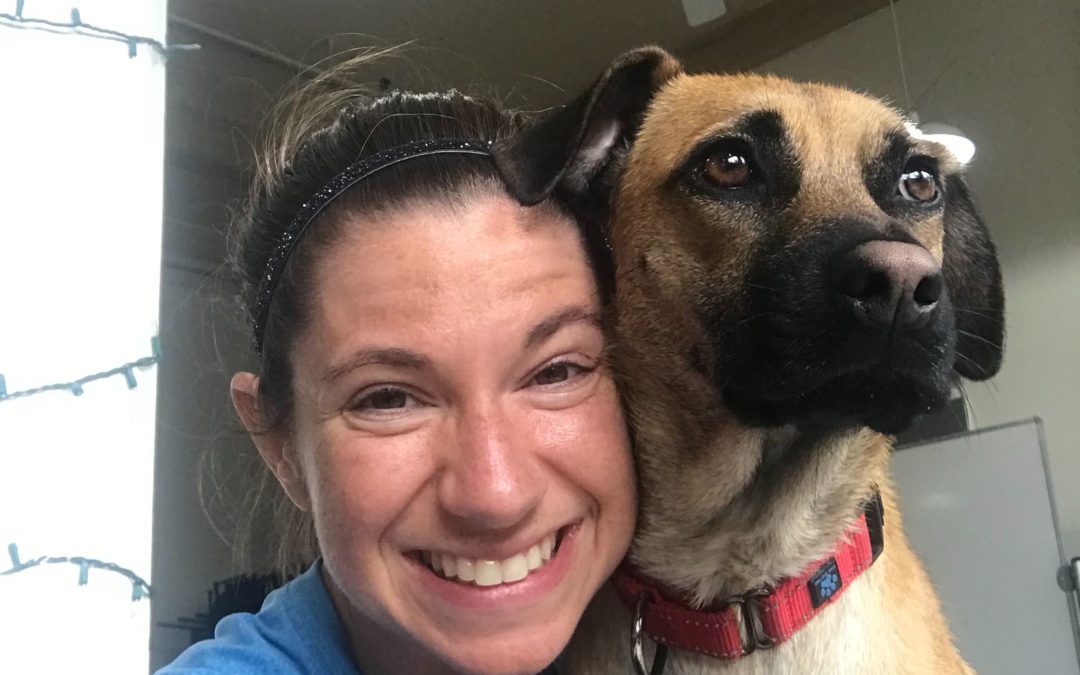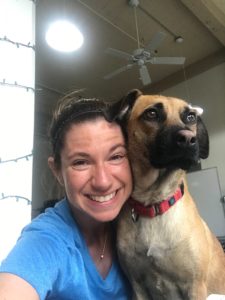Earlier this week, in our morning minyan, Ilana Rossoff shared a very short poem by June Jordan that has been on my mind this whole week. It goes like this:
There is no chance that we will fall apart.
There is no chance.
There are no parts.
At this moment, it feels like everything is crumbling all around us. The number of confirmed cases of the virus in the US is now over 80,000 (as of 3.27.20), the highest in the world. 3.3 million people across America filed unemployment claims this week, dramatically overwhelming any previous record we have ever known. Streets are empty, businesses are locked, and even the Chicago lakefront has officially been declared off-limits. I haven’t seen anyone in person other than Joel and my immediate neighbors in two weeks.
And yet, I have never in my life felt more in solidarity with all of humanity than I do right now.
There is a famous line from the Talmud, in Masechet Shevuot: כל ישראל ערבים זה בזה.
Kol yisrael arevim zeh ba’zeh. The entire Jewish people is responsible for one another.
Arevim – this word for responsible – comes from the Hebrew and Aramaic root ayin, resh, vet, which means to be mixed up together. To be so intertwined that we cannot see where one of us ends and the other begins. And arevim also means to be responsible for one another, guarantors for each other’s safety and livelihood.
And of course, for us, this is no longer just a connection that links us to the Jewish people – our fates are bound up with all of humanity.
I feel this connection just on a micro level every morning when I take our dog Sophie out for a walk. This morning when we were out, I noticed that every time I’d see another human being, I’d feel two opposite reactions simultaneously: aversion AND attraction, the desire to stay as far away from other people as possible, AND at the same time, the longing to connect and find some way to interact with them.
Sophie can get away with it, so she’ll walk up to another dog and sniff its butt like normal, and I’ll sheepishly look up at the dog’s human with a shrug and smile, just feeling secretly grateful to have an excuse to look into someone’s eyes.
Our longing to connect is undeniable. And it can feel like it’s the virus that created this connection – but that’s not true. This moment is just revealing what has been true all along – that we need each other.
And yet any in-person contact right now is putting ourselves and others at risk, when we know that according to a mathematician who specializes in disease outbreaks, one infected person leads to about 400 additional cases. It can be really hard to grasp this reality, of how much our lives and fates are intertwined – but there’s a midrash on this week’s parsha, Vayikra that speaks to this:
ונפש כי תחטא (ויקרא ה׳ א׳)
דבר אחר למה אינו אומר נפשות כי יחטאו? שכל ישראל נקראו נפש אחת שנאמר כל איש ישראל כלם כאיש אחד (שופטים כ׳ י״א), ואם חטא אחד מהם כלם ערבים זה בזה. למה הדבר דומה לבני אדם שהיו באין בספינה נטל אחד מקדח והתחיל קודח תחתיו א״ל שוטה אתה קודח תחתיך והמים נכנסין וכולן אבודין, כך נפש כי תחטא.
The Torah is talking about sin and sacrifice, and says: “v’nefesh ki techeta” – here’s what you do when an individual soul, a nefesh, sins. But the midrash asks: Why doesn’t the Torah say “when SOULS sin,” in the plural, if we’re talking about the collective? And the midrash responds: it’s because our entire people is called nefesh achat, a single soul – and if one of them does something they aren’t supposed to, the entire people is affected – kulam arevim zeh bazeh. We are all inextricably linked.
And the midrash goes on to say: Okay, what is this like? This is like a group of people who were all traveling on a boat, and one of them took a drill and began to drill underneath his own seat. The others turn to him and say: “You fool! You are drilling underneath your seat, but the water is entering the boat and we will ALL be lost!”
Right now, we are all in this boat, and we’re doing what we have to do in order to save lives. But what I’m afraid of in this moment of social isolation and turning inward, in addition to the death toll and the collapse of the economy, is the toll that this pandemic will take on our sense of shared humanity and sense of areivut, of being bound up together. I’m scared that we will become so accustomed to this life of separateness and so afraid of potentially transmitting the virus that we’ll even stop connecting in the ways that are still possible.
Here’s how an American writer living in China described life during the 45-day lockdown in his high-rise complex in Chengdu:
“On the thirty-ninth day of the lockdown, the packages in my lobby included a box of houseplants for 3703 and some flowers for 2903. It was now March, and sometimes I saw people on their balconies, tending plants. But it still seemed rare for residents to leave the compound. When women went downstairs to pick up packages, it wasn’t unusual for them to be dressed in pajamas, even in the afternoon…
People rarely spoke in these situations. There were no greetings, no jokes, no moments of commiseration. Part of it was the masks, which were an obsession. On my floor, residents wore them even if they were merely dropping off garbage, ten feet from their door. Mask-wearing, after all, was required by the new measures, and people were diligent: I often saw motorcycle deliverymen helmetless and fiddling with their phones at thirty miles an hour, their masks safely in place….
Masks also make it easier for people to ignore one another. If residents passed me in the courtyard, they avoided eye contact; some wore see-through plastic gloves and surgical booties in addition to the masks. These costumes of the quarantine, along with all the other restrictions, helped turn citizens inward, and people directed their energy toward whatever space was left to them.”
We can’t let this become “every person for themselves.”
The thing that we’re feeling right now? That longing to be together again? That desire to connect, to be able to hug our parents and our grandparents and our siblings and friends – we can’t lose that. We can’t act on it, but we can’t lose it either. It’s what is keeping our humanity alive.
I want to bless us with the ability to find areivut in this moment, across the distance – through our screens, in the faces of strangers, with the people on our block and the people halfway around the world who are in the same exact boat we are in, right now.
There is no chance that we will fall apart.
There is no chance.
There are no parts.
Shabbat shalom.



This was so beautiful and helpful. I am feeling many of these same sentiments. The need to smile at anyone I see in the flesh, even if I know them or not. A smile can leap 6 feet so I figure it’s always ok. I believe we will come out stronger and more connected knowing we are all trying to protect each other.